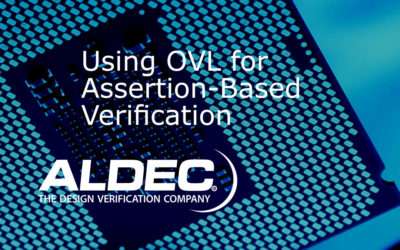FPGA Simulation
Functional Verification
Emulation & Prototyping
Requirement Management
Mil/Aero Verification

Aldec, Inc.
Aldec, Inc. is an industry-leading Electronic Design Automation (EDA) company delivering innovative design creation, simulation and verification solutions to assist in developing complex FPGA, ASIC, SoC and embedded system designs. The quality of the products and the customer-oriented support particularly characterize Aldec. With an active user community of over 35,000, 50+ global partners, offices worldwide and a global sales distribution network in over 43 countries, the company has established itself as a proven leader within the verification design community.
Aldec Riviera-PRO™ UVM-Generator
Riviera-PRO™ has been enhanced with an automatic UVM generator function The addition promises to significantly increase the productivity of Riviera PRO users who take advantage of the Universal Verification Methodology, which provides guidance for creating and reusing verification testbenches.
Constraint Random Verification with Python and Cocotb
Cocotb, an approach to using Python as a testing language, allows developers to start with small, directed test benches and evolve them into more thorough constraint random tests.
Using OVL for Assertion-Based Verification of Verilog and VHDL Designs
Open Verification Library (OVL) is a library of property checkers for digital circuit descriptions written in popular Hardware Description Languages and maintained by Accelera. The OVL checkers could be used not only in dynamic simulation, but also in formal...
The most error prone FPGA corner cases
Cycle related corner cases are probably the worst and main reason for undetected bugs on many FPGAs. To explain this in a simple way, – a cycle related corner case is for instance if you have an event counter where the number of counted events is critical and you read and reset this counter at regular intervals.
UVM for FPGAs Seminar – Part 4 – IEEE 1800.2 UVM Updates
As with many popular useful standards, UVM has attained the coveted IEEE standardization in 2017. Interestingly, UVM is the first verification methodology to be standardized, and the current version is IEEE 1800.2-2020.





